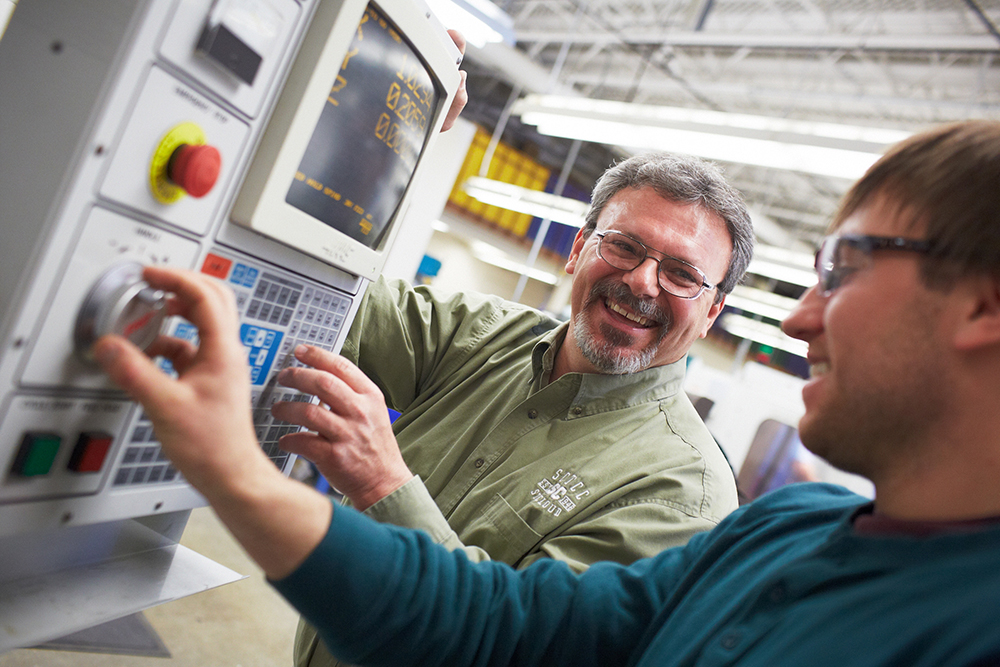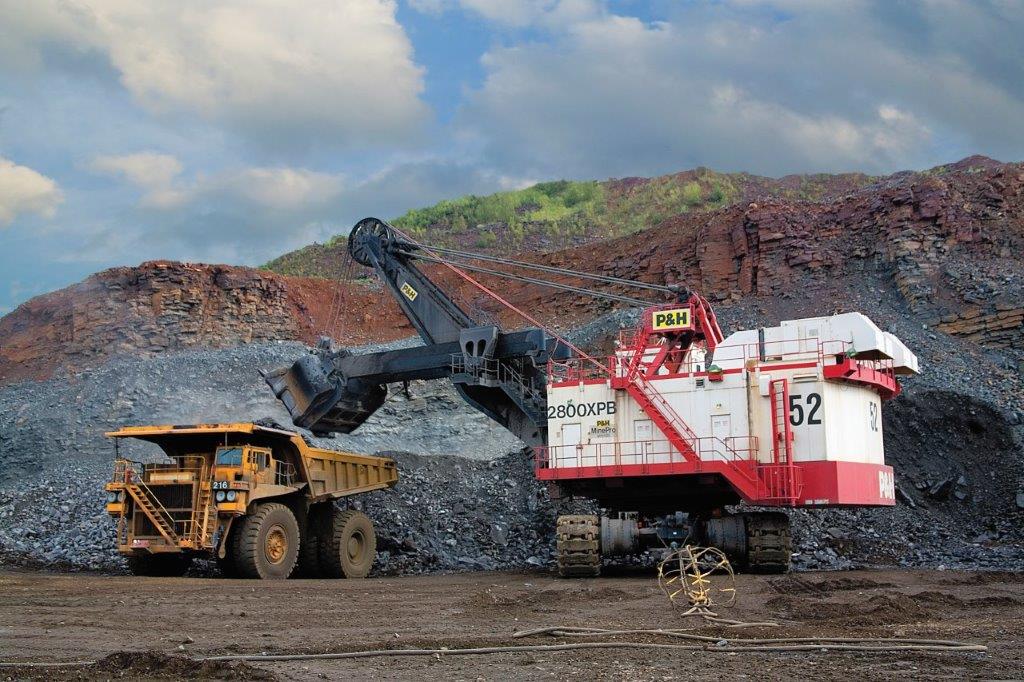Explore Incentives
Minnesota is highly competitive in offering business-friendly incentives, grants and loan programs, in addition to tax credits and benefits, to help private industry expand, add workers and retain high-quality jobs. Some of our key programs include:
Business Financing
- Minnesota Job Creation Fund provides financial incentives up to $2 million to new and expanding businesses that meet job creation and capital investment targets.
- Minnesota Investment Fund offers loans up to $1,000,000 loan and focuses on industrial, manufacturing, and technology-related industries. Funding is provided to local units of government, which use the money to provide below-market rate loans to help companies expand. Funding may be used to purchase land, machinery and equipment.
- Minnesota 21st Century Fund makes loans or equity investments in innovative mineral, steel, or other industry processing, production, manufacturing, or technology projects located in the taconite relief tax area.
- Minnesota Forward Fund is a $400 million initiative to provide matching funds to companies seeking to expand using federal resources.
- Automation Loan Participation Program provides companion loans intended to fill gap financing needs for businesses purchasing machinery, equipment, or software to increase productivity and automation. Loans of up to $500,000, 5 to 7 year term, 1% interest rate, private financing match required.
- Minnesota Loan Guarantee Program provides 80% loan guarantees for qualified loans made by enrolled lenders; lenders are responsible for setting loan terms. Guarantees up to $800,000 with a .25% guarantee fee on loans enrolled by banks, credit unions, CDFIs and other nonprofit lenders; businesses apply directly with enrolled lenders.
Tax Credits & Benefits
- Sales & Use Tax Exemption Minnesota exempts capital equipment used in the manufacturing process from the sales tax. There are also several other major exemptions for businesses, including fees for equipment installation and repair; utilities, chemicals and gases used for industrial production; and most services.
- Commercial and Industrial Property Tax Exemption Minnesota exempts personal property like machinery and inventory from the property tax, resulting in a lower effective tax rate for real and personal property. As a result, businesses whose equipment and inventory values are high, relative to their real estate value, pay a lower effective tax rate than in states that impose such taxes.
- Research and Development Tax Credit for R&D expenditures is 10 percent, up to the first $2 million in eligible expenses. The credit is 4 percent for eligible expenses above $2 million. Individuals involved in partnerships, S-corporations and limited liability companies can claim the credit against their individual income taxes. This opens up the tax credit to more small and medium-sized businesses.
- Greater Minnesota Job Expansion Program provides sales tax exemptions for up to 7 years to existing businesses located in Greater Minnesota that increase employment and meet other eligibility requirements.
- Bioscience Incentive Program provides production payments to encourage commercial-scale production of advanced biofuels, renewable chemicals, and thermal energy production from biomass.
- Data Center Sales Tax Incentive is for companies that build new data or network operation centers of at least 25,000 square feet and invest $30 million, or refurbish an existing center of at least 25,000 square feet and invest $50 million, qualify for sales tax exemptions for 20 years on computers and servers, cooling and energy equipment, energy use and software, and they pay no personal property tax ever.
- Sustainable Aviation Fuel (SAF) Tax Credit provides provides state tax credit to qualifying taxpayers for producing or blending SAF in the state between July 1, 2024, and June 30, 2030. The credit amount equals $1.50 for each gallon of SAF that is both:
- Produced in Minnesota or blended with aviation, gasoline, or jet fuel in Minnesota, AND
- Sold in Minnesota to a purchaser who certifies that the SAF is for use as fuel in an aircraft departing from an airport in Minnesota.
- Minnesota Foreign Trade Zones can help businesses reduce or eliminate duty payments and merchandise processing fees and offer other benefits; Minnesota has three FTZs – in Minneapolis-St. Paul, Duluth and International Falls.
- Opportunity Zones use federal tax incentives in low-income urban and rural communities to draw long-term investment to areas with the most economic need by creating a fund for these investments.
- Border Cities Enterprise Zones Program provides business tax credits (property tax credits, sales tax credit on construction equipment and materials, new or existing employee credits) to qualifying businesses that are the source of investment, job creation or retention in the border cities of Breckenridge, Dilworth, East Grand Forks, Moorhead, and Ortonville, as well as in the Development Zone of Taylor's Falls. Financial assistance amount is determined by the respective city pursuant to published program guidelines.
Workforce Training & Development
- Minnesota Job Skills Partnership Program partners with businesses and schools to train or retrain workers, expand opportunities, and keep high-quality jobs in the state. Grants of up to $400,000 are awarded to educational institutions that partner with businesses to develop new-job training or retraining for existing employees.
- Job Training Incentive Program provides grants of up to $200,000 for businesses to provide training for at least three new jobs new jobs outside the seven-county metro area or in Hanover, Rockford, Northfield and New Prague.
- Automation Training Incentive Program provides grants of up to $25,000 are available to small businesses in the manufacturing or skilled production industry for the express purpose of training incumbent workers as quickly and effectively as possible on new automation technology.
- Scitechsperience Internship Program is a paid internship that connects college students in science, technology, engineering and math disciplines with hands-on opportunities at Minnesota companies. The focus is on strengthening Minnesota's STEM industries and developing an experienced and well-trained workforce.
- Workforce Strategy Consultants design tools and resources to support businesses with workforce solutions, are your partners for training and development needs.
Community Financing
We partner not only with businesses but also with cities, counties and economic development authorities to ensure the public infrastructure that makes business expansions possible, including:
- Greater Minnesota Business Development Infrastructure Program makes investments in public infrastructure to stimulate new economic development and to create and retain jobs outside the Twin Cities metropolitan area.
- Innovative Business Development Public Infrastructure Program provides grants to local governmental units for public infrastructure related to a development project used by innovative businesses and organizations.
- Redevelopment Grant Program helps communities with the costs of redeveloping blighted industrial, residential, or commercial sites and putting land back into productive use.
- Contamination Clean Up and Investigation Grant Program helps communities pay for assessing and cleaning up contaminated sites for redevelopment.
- Transportation Economic Development Infrastructure Program is a competitive grant program available to communities for road and public infrastructure projects that create jobs and support economic development.
- Tax Increment Financing is used by cities, counties, and development authorities to help finance costs of real estate development to encourage developers to construct buildings or other private improvements and to pay for public improvements, such as streets, sidewalks, sewer and water, and similar public infrastructure improvements that are related to the development.
- Tax Abatement is used by cities, counties and school districts to help finance certain economically beneficial projects. Property taxes are forgiven for a period of time to allow the project to cash flow. Or the taxes are captured for a period of time and an up-front payment is made by the political subdivision to help the project cover startup costs.
